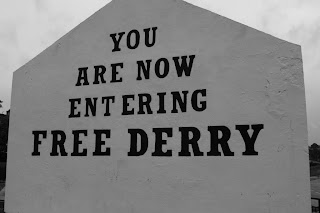I was born into a world where Zaire, Malagasy, Kampuchea, Upper Volta and Rhodesia were countries. I grew up with the names Leningrad, Bombay and Peking firmly planted in my mental geography!
But the map of the world is continually changing - whether it's the addition of new countries, like South Sudan, or the renaming of cities, from Saigon, in the year of my birth to the more recent changes, such as St Petersburg, Mumbai and Beijing. I guess the older one gets, the more confusing the map of the world becomes and some habits (like calling St Petersburg, Leningrad or Mumbai, Bombay) are hard to break!
 |
| Map of Hindoostan from 1831 |
I wonder how much the growth of nationalism, especially Hindu nationalist parties like the Marathi Shiv Sena party, have influenced this recent tendency to change the names of Indian cities. Whilst Kolkata and Bengaluru seem to be more accurate spellings of the names of these cities, I was surprised to find out that Mumbai is not simply a 're-spelling' of Bombay, but is a name with its own significance, from the Koli goddess Mumba and the Marathi word Aai, which means 'mother'.
In other countries, like China and Korea, redefining the way their languages are romanised (ie. written in the Latin alphabet) has resulted in name changes that sometimes seem quite different to speakers of European languages. Particularly in China, where many of the romanised names were originally based on Cantonese rather than Mandarin, the resulting changes meant that Peking became Beijing and Canton became Guangzhou. It's interesting to note that the names haven't actually changed in Chinese, but are a result of the adoption of the pinyin system of writing Chinese by other, predominantly European languages.
 |
| Map of France in Hindi |
So is all this name-changing really worth it, especially if the purpose is to establish political supremacy or nationalism? Perhaps the most controversial name where I come from is Derry or Londonderry, Northern Ireland's second biggest city. I grew up calling it Derry and I still find it hard to think of Londonderry as a place that exists anywhere outside my adult experience of geopolitics. It's a contentious name and, like Bombay, Calcutta or Madras, symbolises British rule for a population that is dissenting or independent.
 |
| Free Derry corner by Paolo Trabattoni |
Personally I think it's important for names to change - although I grew up with Bombay, Peking and Leningrad, I recognise the symbolic nature of city name-changing and see this as an important process in countries that are going through political and cultural change. How the rest of the world reacts is another matter. I'd imagine most of us have a very personal mental map of the world which captures our understanding of geography in a way that no paper or digital map ever could.
It'll be interesting to see how the world continues to change as this blog ages (there have already been some small changes to the world map since I started in 2009). Perhaps I'm blogging about places that will cease to exist - what will the countries and cities of the future be called? I can't wait to find out!
Image credits:
The first two images are from Wikimedia commons and are in the public domain.
The image of Free Derry corner was taken by Italian photographer Paolo Trabattoni who is a graphic designer. You can see more of Paolo's work on his Flickr photostream or on his website. Thanks Paolo for sharing this image with us using the Creative commons license.

1 comment:
Very true even i dont support this kind of changes we had seen lots of old place got renamed.
Post a Comment